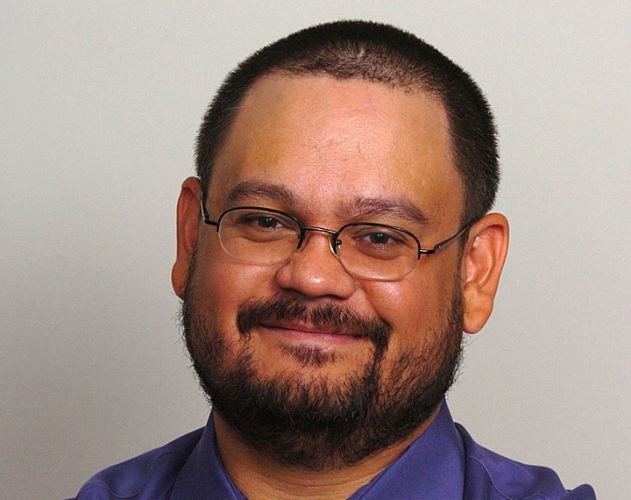Vancouver lawyer Mark Jette was in an absurd position - a monitor overseeing an overseer who watches the watchers.
And his appearance in the ongoing tragedy of Greg Matters is the latest exercise in assurance regarding the circumstances of the ex-soldier's death that only seems to make everyone less certain of just what happened in the days surrounding Matters' September 2012 shooting death at the hands of an RCMP Emergency Response Team.
Jette describes the lack of resolution and clarity that permeate that event - and the subsequent work of the then newly-formed police watchog, the Independent Investigations Office - as a sense of "nagging unease." His report into the IIO probe of Matters' death - the agency's first - released earlier this month, adds to that discomfort. Appointed last June by Richard Rosenthal, the IIO's chief civilian director, to review allegations levelled against the agency by former employee and the lead investigator in the Matters case, Robin Stutt, Jette details how a series of decisions by Rosenthal "may to some extent damage the public's confidence that the investigation was conducted in a fair and unbiased manner..."
Jette's concern revolves around the involvement of two IIO employees in the Matters investigation: Roy Fitzpatrick and Patrick Kennedy. He writes that the agency opened the very day Matters was killed; as such, at the time it was struggling to fill its ranks with 'civilianized' investigators who, according to the laws that created IIO, could not be either current members of a law enforcement agency or had not been members of a B.C. police force for at least five years.
At the onset of the Matters investigation, Fitzpatrick had worked with the RCMP's major crime unit in Kelowna in 2008 and Kennedy, due to some unclaimed hours, was still on the RCMP's payroll. Neither was eligible to work as an IIO investigator according to the Police Act but Rosenthal decided to send them to Prince George to work on the Matters case as 'advisers' to supplement the investigation.
Jette writes that Kennedy's work on the case was 'invaluable' and neither man's presence "undermined the integrity of the investigation"; nevertheless he said both were involved in the work beyond their role as advisers and "the mere fact of their participation is inconsistent with the principles which underline the creation of the IIO." The report also points out that, despite warnings from his staff, Rosenthal declined to disclose the nature of Kennedy's and Fitpatrick's involvement to the Matters family and, in the final investigative report given to the coroner prior to an inquest in the ex-soldier's death on Oct. 2013 and the Matters family lawyer, Cameron Ward, 'it would have not been possible to discern that Kennedy and Fitzpatrick were ineligible for appointment as investigators.'
Technicalities, perhaps, but concerns, nevertheless, that will, as Jette put it, "will only add fuel to the fire" of the Matters family's belief that Rosenthal and the IIO were wrong to clear the officers involved of wrongdoing in the ex-soldier's death.
The Matters family, however, isn't confining their dismay to the presence of Kennedy and Fitzpatrick; Matters' sister Tracey is criticizing Jette's report for failing to address Rosenthal's handling of forensic evidence in the case.
Stutt's complaint, which triggered Jette's appointment as a civilian monitor, also questioned, according to the Province, why, following the Matters autopsy, his request to have a bio-mechanical engineer to determine 'the path of the bullets through Mr. Matters and the trajectory from which they were fired' was denied by Rosenthal.
In both his initial public report on the Matters shooting and in an interview with the Province, Rosenthal said he 'did not feel that the trajectory [of the bullets] was relevant' because the officer who shot Matters was not firing in self-defence but was acting to defend the life of another officer who Matters allegedly threatened.
The trajectory of those bullets has not been kind to Rosenthal. In his initial public report, he wrote that Matters died from 'two bullets to the chest'; after a pathologist testified Matters was shot in the back, Rosenthal issued a second supplemental report to apologize for the mistake and clarify his position on the bullets' trajectory, among other issues.
In the supplemental report, Rosenthal wrote that when he initially read the pathologist's autopsy, presumably in 2012, because the bullets broke Matters' ribs as they entered his body, "[this] raised questions for me about how bones can potentially change the directions of bullets." Two years later and after the coroner's inquiry, IIO staff met the pathologist, who explained Matters' ribs wouldn't have altered the trajectory. While there is other evidence, it's unfortunate Rosenthal apparently didn't have the most complete information available to him in regards to the bullets' trajectory; a bio-mechanical reconstruction may have aided him and it's curious Jette didn't explore this facet further in his report.
Both Rosenthal, the head of the IIO, and Stutt, the investigator whose complaints triggered Jette's report, agree that the decision to clear the Prince George ERT in the Matters shooting was correct. Indeed, it is a bizarre irony that Jette writes relations between Rosenthal and Stutt deteriorated in earnest because the former believed the latter's report was biased toward the Mounties.
The problem between the two men - and at the heart of the IIO investigation - is that nagging unease that the dots will never quite connect when it comes to the death of Greg Matters. And it seems nothing can stop that unease from growing.



